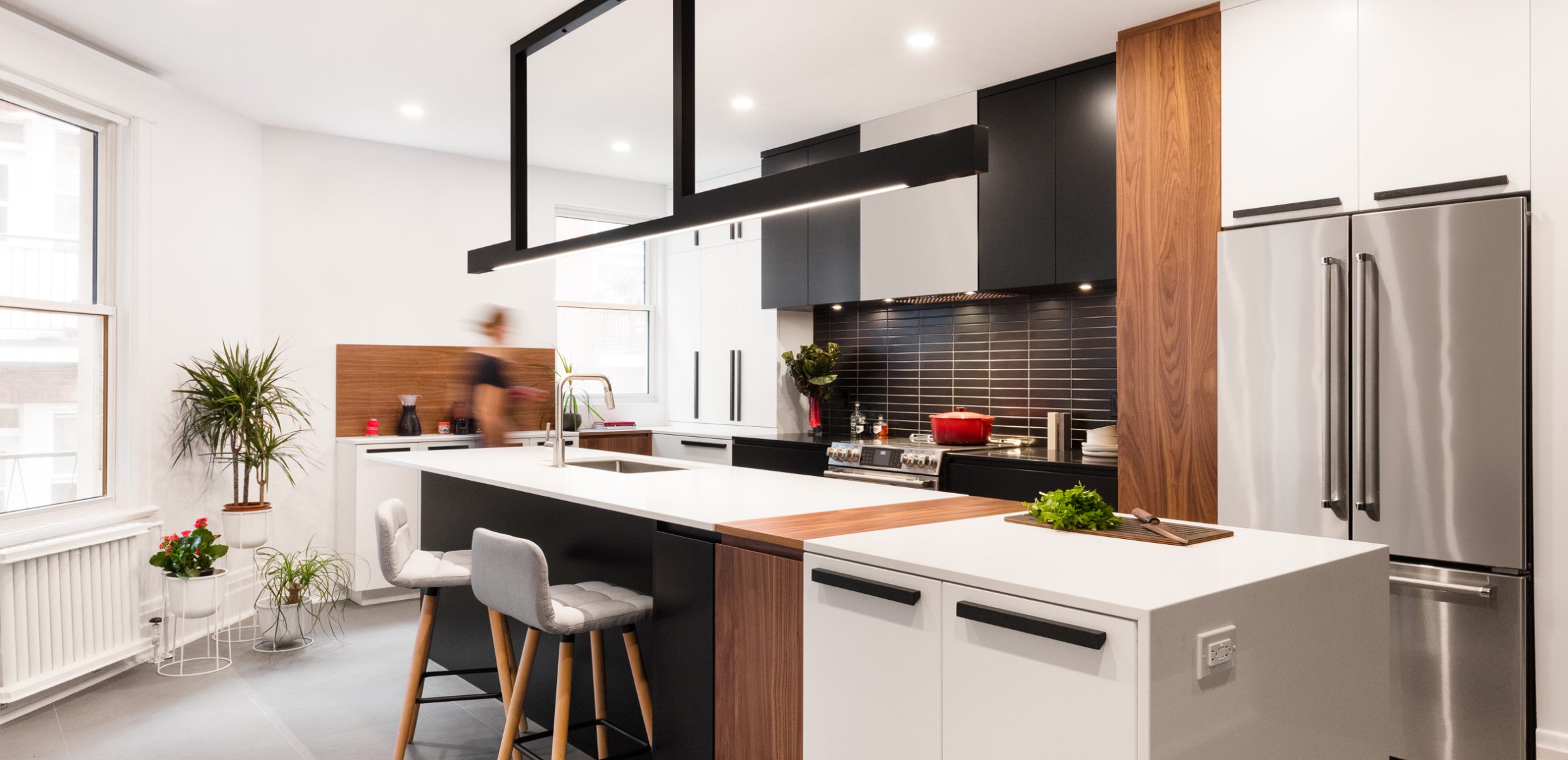Different materials for your kitchen countertop
Combining aesthetics and functionality, the kitchen countertop occupies a prominent place in your kitchen. Heat, humidity and scratches are particularly common. The choice of materials for counters must be well-thought-out. Here is a short guide to help you make your choice!
Quartz
It is the most resistant to stains, shocks and heat. It looks beautiful and requires no sealant. Quartz counters represent the perfect combination of nature and technology. Made of approximately 93% quartz and resin, these counters will add charm to all your projects.
Granite
It is a natural stone that offers a wide range of colors. It is resistant to stains, scratches, heat and water. It is easy to maintain, but requires a sealant once a year to protect it. It can be matte or polished. Premium material, durability and luxurious appearance make granite a sought-after product.
Dekton
It is made of a factory assembly of inorganic material that comes from glass, porcelain and quartz. The secret of Dekton’s resistance lies in the compacting of these materials. It is 30 times more compact than quartz and porcelain, and is 5 times less porous than quartz. No matter which style you want to give to your room, you’ll find the Dekton counter that’s right for you. Several finishes and thicknesses are available.
Marble
It is a natural stone with a multitude of colors ranging from white to black. It is durable in time, resists scratches and water, but stains more easily than granite. It can sometimes crack in the heat, but it is possible to restore it. It requires professional maintenance. Too porous, we do not recommend it for a kitchen counter.
Solid Surface
It will give a unique look to your kitchen. Made of polymer, it is undoubtedly the material that will give you the most freedom. It is possible to merge it into a sink, a backsplash and give your countertop unique shapes. With the joints not visible, the solid surface counter is composed of 2/3 of mineral fillers and 1/3 of acrylic resin.
Laminate
It offers a multitude of finishes, colors and imitates noble materials, such as wood and marble. It is easy to maintain, but can be damaged by contact with strong direct heat.
Concrete
It gives an industrial effect that goes well with wood and stainless steel. It can be dyed in different colors and offers the possibility of molding the sink in one block at the counter, thus avoiding any joints. It requires a sealant.
Tile
It offers an infinite possibility of patterns and textures. Porcelain, non-porous, is ideal in a kitchen because it is insensitive to stains. Easy to maintain, it is also very resistant because of its mono-cooking.
Wood
It brings a lot of charm and warmth to your kitchen. However, it swells easily and requires maintenance. It must be sealed regularly. For work surfaces, hardwood is used, usually cherry and maple. Since it reacts to moisture, it is best to avoid installing it near the sink.


